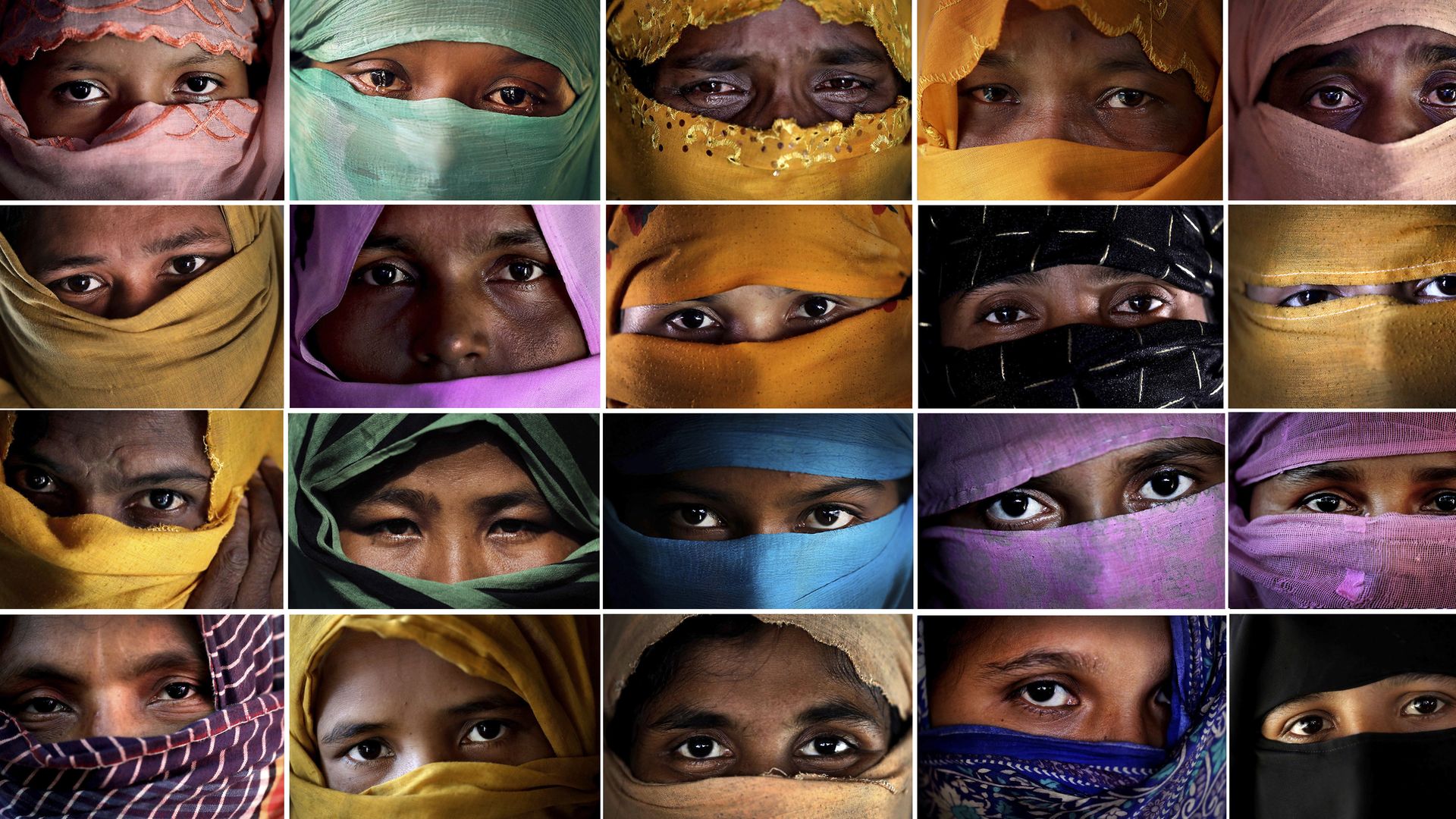Dec 11, 2017
Rohingya women say they’ve been raped by Myanmar military
Add Axios as your preferred source to
see more of our stories on Google.

Portraits of some of the Rohingya Muslim women taken during an interview with The Associated Press.
Add Axios as your preferred source to
see more of our stories on Google.

Portraits of some of the Rohingya Muslim women taken during an interview with The Associated Press.